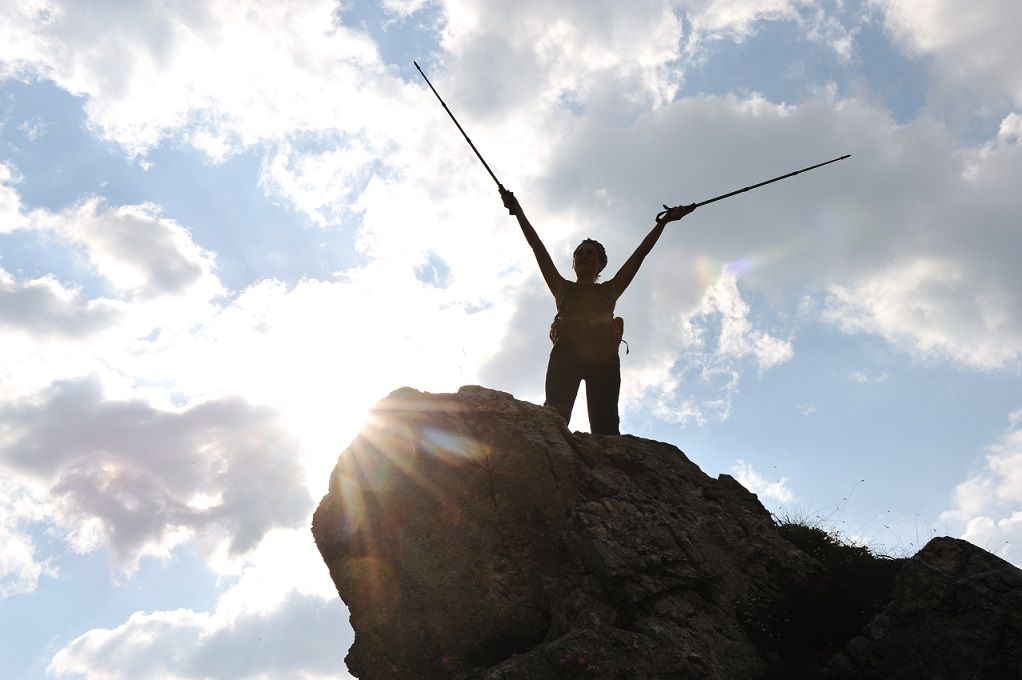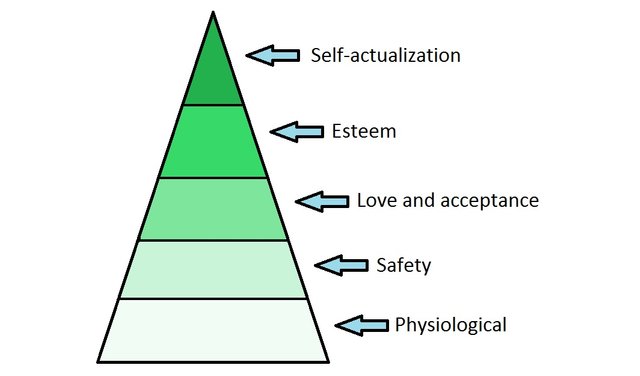Why privilege really matters

Courtesy of GraphicStock.com
Privilege has become an increasingly hot topic these days. There are those who choose to view privilege as a black and white issue -- both literally and figuratively; who believe that privilege, alone, determines our place in this world. And, sometimes, that those who have it are undeserving of their success and in active opposition to those who don't.
Perhaps worse, though, are those who refuse to acknowledge that privilege exists. These are the people who believe that everything they've achieved in life is due entirely to their own volition. And everything others have failed to achieve is due to their own lack thereof.
Like most things, the truth lies somewhere in the middle.
Privilege is not something we "have" or "have not." Privilege exists on a spectrum. Or maybe more accurately, on multiple spectrums that intersect and overlap. It is something that we experience, not as all or none, but in varying degrees.
What is a privilege?
Privilege n 1. A special right or advantage available only to a particular individual or group.
Privilege n 1. A special right or advantage available only to a particular individual or group.
This is how privilege is defined in the Canadian Oxford dictionary, but I think this definition is missing one key aspect: it's a special right or advantage we receive that we have done nothing to deserve.
Based on this definition, I have lead an extremely privileged life:
- I was born into what is arguably the best country in the world -- Canada. I did nothing to become Canadian.
- My parents who provided all of my basic needs -- food, shelter, clothing -- and much more. I have never experienced hunger. I have never worried about where I was going to sleep.
- I was raised in a stable home with two married parents who loved and supported me. By example, my parents taught me the basic values I needed to succeed in life, like hard work and dedication, community involvement, family, personal responsibility, and much more.
- I grew up in a community where I always felt safe, secure and accepted.
- My parents and siblings are healthy, my spouse is healthy, our children are healthy and I am healthy -- physically, mentally and emotionally.
- I had access to a good education.
- I was encouraged to set and pursue goals. I was able to take calculated risks because I always had a safety net.
- I am a straight, white female. I have never been discriminated against based on my sexual orientation or physical appearance. Any sexism I've experienced has fortunately been mild and has not had a significant impact on my life.
- I have never been a victim of violence, nor have I experienced trauma.
The list goes on. But what does it mean?
Maslow's Hierarchy of Needs
To fully understand how privilege has impacted my life, let's take a look at Maslow's Hierarchy of Needs.

For those who are unfamiliar with this theory, Maslow stated that people are motivated to meet certain needs over others and that we have to achieve the needs at the bottom of the scale (i.e. physical survival) before we can go on to pursue others (i.e. love and acceptance).
In his original model, Maslow focused on five key needs:
- Physiological: the basic necessities of life -- air, food, water, shelter, sleep, etc.
- Safety: protection from the elements, security, stability, freedom from fear, etc.
- Love and acceptance: friendship, intimacy, affection, belonging, etc.
- Esteem: personal achievement, self-respect, respect from others, status, independence, etc.
- Self-Actualization: realizing your potential, personal growth, self-fulfillment, etc.
Maslow described the first four needs as deficiency needs and argued that these needs must be met before an individual can move up the hierarchy to self-actualization, which he described as a growth need. The hierarchy was later expanded to include other growth needs:
- Cognitive: knowledge, curiosity, meaning, etc.
- Aesthetic: beauty, art, balance, etc.
- Self-Actualization
- Transcendence: helping others to achieve self-actualization
How privilege affects our ability to meet our needs
We all have the capacity and desire to move up the scale toward the ultimate goal of self-actualization and transcendence. However, we don't all start at the same level, nor are we able to meet each need in the same way, with the same ease, or in the same time frame. This is where privilege comes into play.
In my own case, the privileges that I've listed above mean that I, for the most part, was able to reach the fifth level of the hierarchy before reaching adulthood. But this is not the case for everyone.
Generally speaking, statistics show that life remains more difficult for some groups, such as those who are part of a minority (i.e. non-white, transgendered, disabled) or who lack power (i.e. people living in poverty), than it is for others. More often than not, the things that put us at a disadvantage in our current society are interconnected, making it even more difficult for individuals starting at the bottom of the hierarchy to work their way up.
For example, in Canada, if you are of First Nations descent, you are more likely to live in poverty. If you live in poverty, you are more likely to be exposed to violence. If you are exposed to violence, it not only becomes harder to achieve a sense of safety -- let alone a sense of love and belonging -- but the lasting effects can also make it more difficult for you to meet your physiological needs.
However, viewing the world in generalities only takes us so far. We also have to see each other as individuals, with unique and varied experiences. A non-white, gay woman who is raised in a loving, stable and safe environment may have more advantages than a white man who grows up in an abusive environment where none of his basic needs are met.
We need to recognise the impact that privilege has so that we can actively work to remove the barriers that prevent others -- and ourselves -- from moving up the hierarchy. One of the main reasons people don't want to acknowledge their own privileges is because they fear it will detract from their personal sense of achievement. But this is a misguided assumption, because while our privilege or lack of privilege affects our place on the hierarchy, so do our own actions. Even if we are fortunate enough to enter the hierarchy of needs at a growth level, our own actions still play a key role in whether we stay there, move up or drop down.
And even those who are seemingly born into privilege can suffer circumstances beyond their control that change their position on the privilege spectrum. Life events beyond our control can still hamper our my progress or drop us to the bottom rung. Illness or loss of employment can make it difficult or impossible for me to meet my physiological needs. An act of violence or a natural disaster can destroy my feeling of safety and security and, in some cases, make it almost impossible to regain. Things outside of our control -- both positive and negative -- have a huge impact on our ability to meet our needs.

Courtesy of GraphicStock.com
In an ideal world, all of us would exit childhood having met our deficiency needs and ready to work toward our growth needs. We still have a long way to go to get there, but here's the good news. Whether we're working on our need for safety or self-actualization, whether we've been boosted by a little bit of privilege or a lot, one of the best ways to meet our own needs is to reach down the hierarchy and pull someone else up.
In fact, according to Maslow, that's the only way we'll ever reach the top.
I agree as Canadians we are extremely privileged but I think very thankful. I love the way everyone pitches in during crises such as the Fort Mcmurray fire and we do try to go beyond politeness to tolerance. I too am grieved by the plight of the First Nations and the disappearance of so many aboriginal women...we're not perfect but humbly admit to being blessed.
A good post - I recognize the wider implications of what you said, but wanted to respond to these particular points. Nice work
Well written article. Well done for sharing this.
Thank you!
I have "work my ass off, graduate high school, don't have children I can't afford to feed, don't waste all day getting drunk, and don't vote for politicians that subvert my community to keep me on the welfare-voting plantation" privilege
I'll share that with everybody
An excellent article, especially the conclusion. This is what it means to create care: uplift others! Resteeming :)
As a guy that spends a good part of every day looking for the best in Steemit, I have to say, this is brilliantly well done. You write well, you have interesting things to say, and you make your argument with force, but without heat.
I'm so glad you wrote this. Thank you very much for your excellent article.
Wow -- that means a lot! I was worried that I was rambling too much, and not making a clear point. I'm glad you enjoyed it!
well done, very nice work there. what happens after you meet all your needs? is that all we need? really? :)
Imo, the main need we need to meet is compassion to the point of predicating my own wellbeing on yours.
Does this work (dharma) ever stop?
It could. But then--the soul is offered the opportunity to return to This Mortal Coil as a servant to the coin whose sides are Suffering and Compassion.
I am woman who is super new to steemit and looking for fellow strong sassy women to follow. Great article! Thanks to @cristof for giving you a shout out @redhens! Following.
Glad you enjoyed it and welcome to Steemit!
The title had me somewhat riled up, but your points are actually sound and balanced. Good use of a controversial subject I guess ;)
I wasn't quite sure how to approach it. I love a good discussion, but am not one to stir the pot just for the sake of it. I'm glad that it actually made some sense.
It sure did.